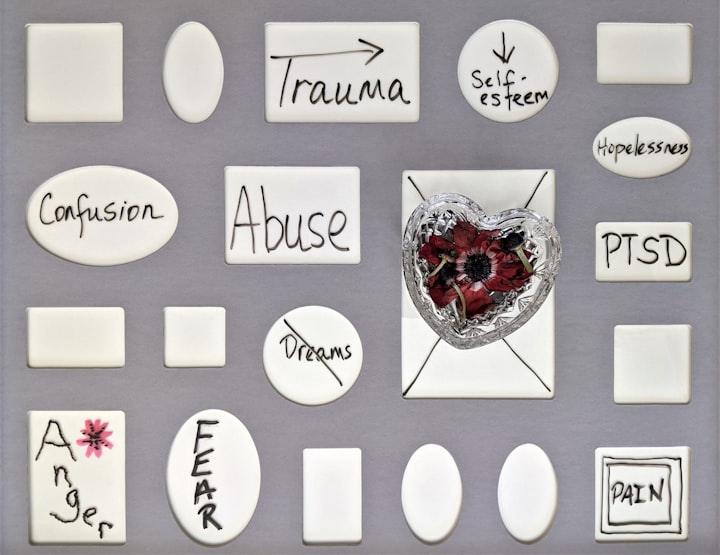
Even though our experience with PTSD can be a confusing one, there are eleven key myths that we see at a fast pace on the campaign trail that are often repeated.
1. PTSD is a long-term psychological disorder, not a brain disease.
Researcher Patricia Roseberry presented convincing evidence to show the cause of PTSD is trauma, and it's not mental illness, but as my friend, Meg, says: "If PTSD wasn't a physical brain disorder, do you think they would go out and torture people?"
Over time PTSD causes damage to the brain, just like a car accident, but this damage is temporary and PTSD can be reversed. Over 90% of veterans suffering from PTSD are over the age of 50. Researcher Anne Marquette showed a correlation between veterans of wars of the 20th century and the developing incidence of dementia. The veterans were more likely to have dementia if they had PTSD when they were younger.

2. PTSD doesn’t exist, only the people that are diagnosed with it can get it.
This may seem a positive myth, but it actually is a huge myth for those that are not getting the diagnosis. A diagnosis is not what allows a PTSD patient to get the support he or she needs. Many times people find themselves diagnosed with PTSD because of events they couldn’t recall, which could have been traumatic events, or could have happened a long time before.
3. PTSD is only triggered by stress.
This is another myth. The effects of PTSD can appear even when the events were trivial. Research shows PTSD is triggered by traumatic events of every kind. Psychologist Marianne Hillenbrand found PTSD symptoms increase the longer the trauma has been ignored.
If PTSD occurs over a long period, is prolonged by social and familial obligations, and exists in situations where there is little to no risk of violence, it may be difficult to find a trigger in a typical person's life.
4. PTSD is a mental health disorder.
Myths and misconceptions. This is perhaps the most damaging of all myths to the majority of veterans who do not consider PTSD a mental disorder. This myth means that there is little to no help available to veterans in the recovery process.
I have seen many veterans in the emergency room over the years, who took great care to disguise the diagnosis of PTSD for fear they would be treated differently.
5. PTSD is part of their daily life.
Lies and myths that are repeated over and over again. However, we should keep in mind PTSD should never be a lifetime diagnosis. Every day veterans have the choice to take control of their lives, reclaim their identities, and overcome their psychological injuries.

6.You know more about PTSD than you do about PTSD.
Most of us don’t know what PTSD is all about. It’s not a medical diagnosis like a lot of other diseases, like cancer or heart disease, that people have studied extensively. We get shocked into thinking we can deal with PTSD through our therapist. This is wrong. We all know that there are more than just PTSD symptoms that are not associated with PTSD, and that this myth can be harmful to other veterans.
7. PTSD is a good thing.
No, it’s not. It makes you feel terrible. Like you are a failure as a person. That you are bad at dealing with pain. Like you can’t be loved or loved enough. People with PTSD are not the problem, it’s the emotional trauma that causes PTSD. It is very damaging to the person with PTSD and to those around them. It’s just not healthy.
8. PTSD is contagious.
False. There’s no reason to believe that PTSD is a contagious illness, or that trauma is contagious. PTSD is NOT contagious, it’s an emotional issue, and it can cause problems in the lives of loved ones, which is something you don’t want. However, people do tend to hold negative feelings about things that have happened to them. PTSD can be a source of this anger and betrayal.

9. Don’t talk about PTSD, you’ll just upset someone.
False. Yes, PTSD can create anxiety and stress for the person who experiences it. However, this can be overcome. There is help for PTSD. Veterans who have been dealing with PTSD long term, and know that they are not alone, can take back their lives and begin to heal.
In many cases, it is no secret that PTSD is a disease, but if we believe it is a disease or you have not been touched by it personally, it’s hard to believe you know what that entails.
10. Post traumatic stress disorder is a mental health disorder, not a moral failing.
Myths and misconceptions. To understand PTSD, we must also understand the shame and stigma around the topic. Sadly, in this case, social ignorance is no different than ignorance about other illnesses.
11. PTSD is something that you can avoid if you try hard enough.
False. PTSD does not exist on a level of morality, or even in a world of the mind. PTSD exists in our world, and it is very real and very dangerous.
Myths don't hold the answers, they perpetuate negative beliefs. Yet most people are not aware of the damage myths can do. Unfortunately, most of us fall into their trap and deny we have mental illnesses. The myths end up making us feel powerless, helpless, and vulnerable. This is the last thing we need in our lives.
What Myth Got You Lost in the Past?
About the Creator
Roy's Corner
I am a teacher & an amateur writer. I want create good content for my readers. Stay with me & encourage me to write well.






Comments
There are no comments for this story
Be the first to respond and start the conversation.